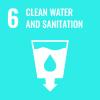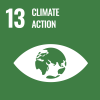Ethiopia – “First, it was our livelihood as farmers that the ongoing drought took away from us,” Elena, a mother of three, shared.
Communities in southern and north-eastern parts of Ethiopia are suffering from a devastating drought following four consecutive failed rainy seasons since late 2020. This is the worst drought in 40 years and is worsening in scope and scale – and increasingly affecting more areas.
“Just when we thought it couldn’t get worse, it also took away all our clean water resources,” she added.
In places like Bule Koram, once reliable sources of water with boreholes and traditional ponds have now either dried up or become unsuitable for use. Elena, like many others, faced the harsh reality of water scarcity.

IOM Ethiopia provides water, sanitation and hygiene support across the country. Photo: IOM 2024/Misgana Kurunde
In response, the International Organization for Migration (IOM), in close collaboration with the local water office, provided safe drinking water to over 7,500 individuals. However, with the initiative previously dependent on fuel, operating the water systems proved costly – particularly as fuel prices soar due to inflation and shortages in supply – and unsustainable.

The installed solar power systems have helped reduce the cost associated with energy and ensure sustainable supply of water to communities. Photo: IOM 2024/Misgana Kurunde
To overcome this challenge, a collaborative effort from IOM and partners bore the solar operated mechanism. Instead of letting the water system run through a generator, a solar-operated mechanism was created, providing a safer, more reliable, and more economical option.
“The solar panels are enough to make the water system running for the whole community. It eases the families with their worries with water, a commodity that is often causing strain especially for households affected by the drought,” said ATM Moniruzzaman, IOM Ethiopia Project Officer.

The solar power also supports the pumping of additional water from a borehole to the water trucks. Photo: IOM 2024/Misgana Kurunde
For Elena, the provision of water support is a lifeline amidst uncertainty: “The future remains uncertain for me and my family, but I am grateful that with this water support in place, we can cook, clean, and feed our remaining cattle. I hope the project continues and can further expand to help other communities who are also struggling,” Elena said.
Across Ethiopia, IOM is providing portable water through emergency water trucking, constructing new and rehabilitating existing water supply schemes and sanitation facilities, procuring, and distributing Water, Sanitation and Hygiene (WASH) items, water treatment services, and promoting hygiene awareness to the drought-affected populations and host communities.

IOM Ethiopia provides water, sanitation and hygiene support across the country. Photo: IOM 2023/Kaye Viray
Investing in renewable energy infrastructure aligns with broader efforts to build resilient and self-sustaining communities, especially in regions vulnerable to climate-related challenges like drought. Through innovative solutions and collaborative partnerships, IOM can continue to address water scarcity and ensure community have access to clean and safe water.
This project is generously funded by the USAID's Bureau for Humanitarian Assistance (BHA).
This story is written by Kaye Viray, Media and Communications Coordinator, IOM Ethiopia.


